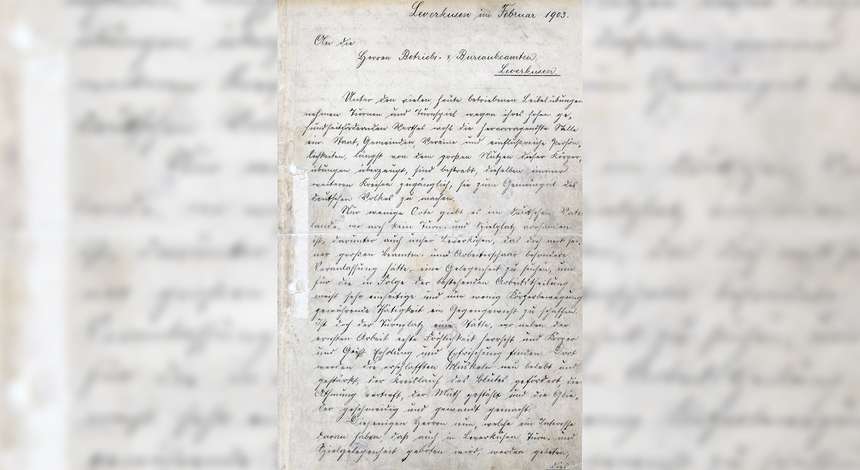
At the turn of the century, there were three unofficial gymnastics clubs, not part of the German Gymnastics Association, in Wiesdorf. Hauschild and Kuhlmann wanted to make gymnastics in Leverkusen, as the area around the works was known, acceptable and in their letter they pointed to the benefits of gymnastics. They asked the management employees to sign to "show their interest in gymnastic and sports opportunities in Leverkusen." The appeal is successful. 170 men respond and provide their signatures.
The letter in full:
Leverkusen February 1903.
To the Herren Betriebs- & Bureaubeamten, Leverkusen.
Among the many physical activities of today, gymnastics and gymnastic games probably take first place due to their health promoting values. State, communities, clubs and influential personalities, are convinced of the big benefits of these physical exercises, and aim to make them accessible to greater and greater numbers for the common good of the German people.
There are few places in the German Fatherland that do not have gymnastics and playing fields including our Leverkusen that, with its large number of officials and workers, would have particular cause to seek the opportunity to provide a counterbalance to the mainly uniform activities involving little physical mobility caused by the existing circumstances of work.
The gymnastics field is a place where genuine happiness rules alongside hard work, and body and spirit find recovery and refreshment. Tired muscles are reinvigorated and strengthened, blood circulation is improved, breathing deepened, spirits raised and limbs made supple and flexible.
Men who now have an interest in Leverkusen of also offering gymnastic and playing opportunities, are asked to provide their signatures so that these signatures can then be sent to the management of the dye factories to seek support in this matter.
The call to take part not only goes out to young employees but older men are also asked to get involved as everybody can find an activity on the gymnastic and playing fields regardless of how old or how young and according to their age and physical condition.
The above is approved by the signatories:
And there are 170 signatures.
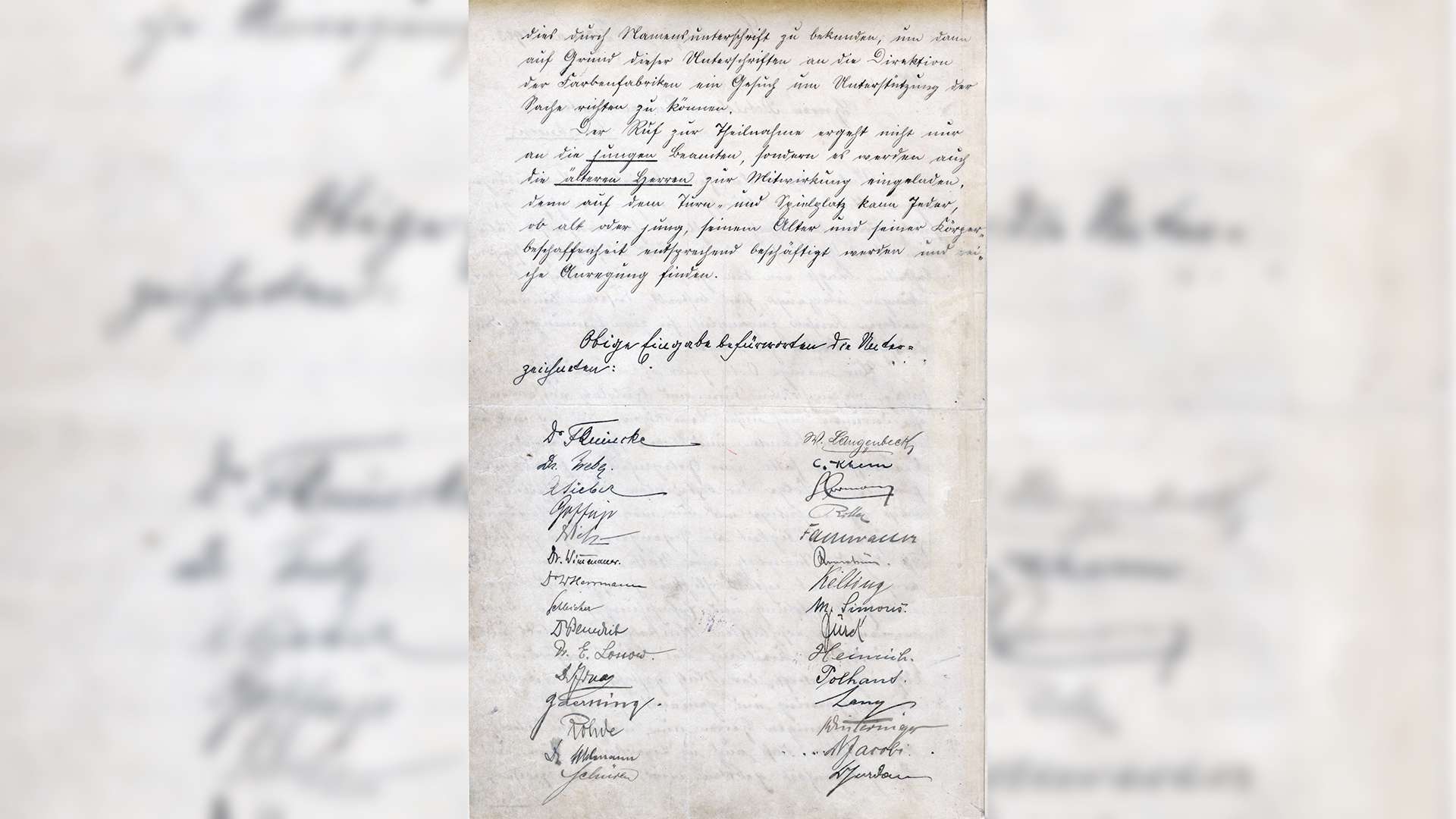

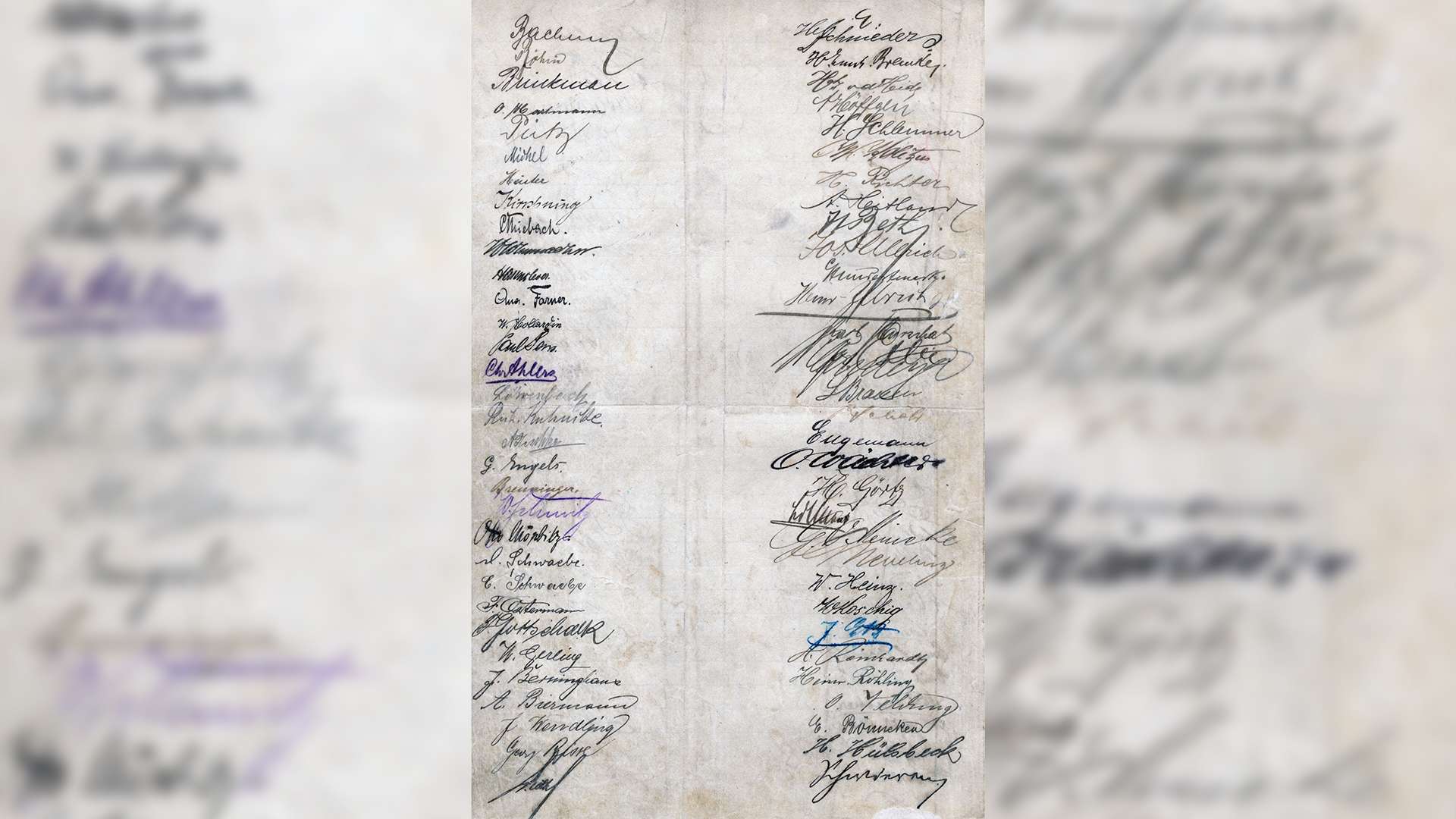
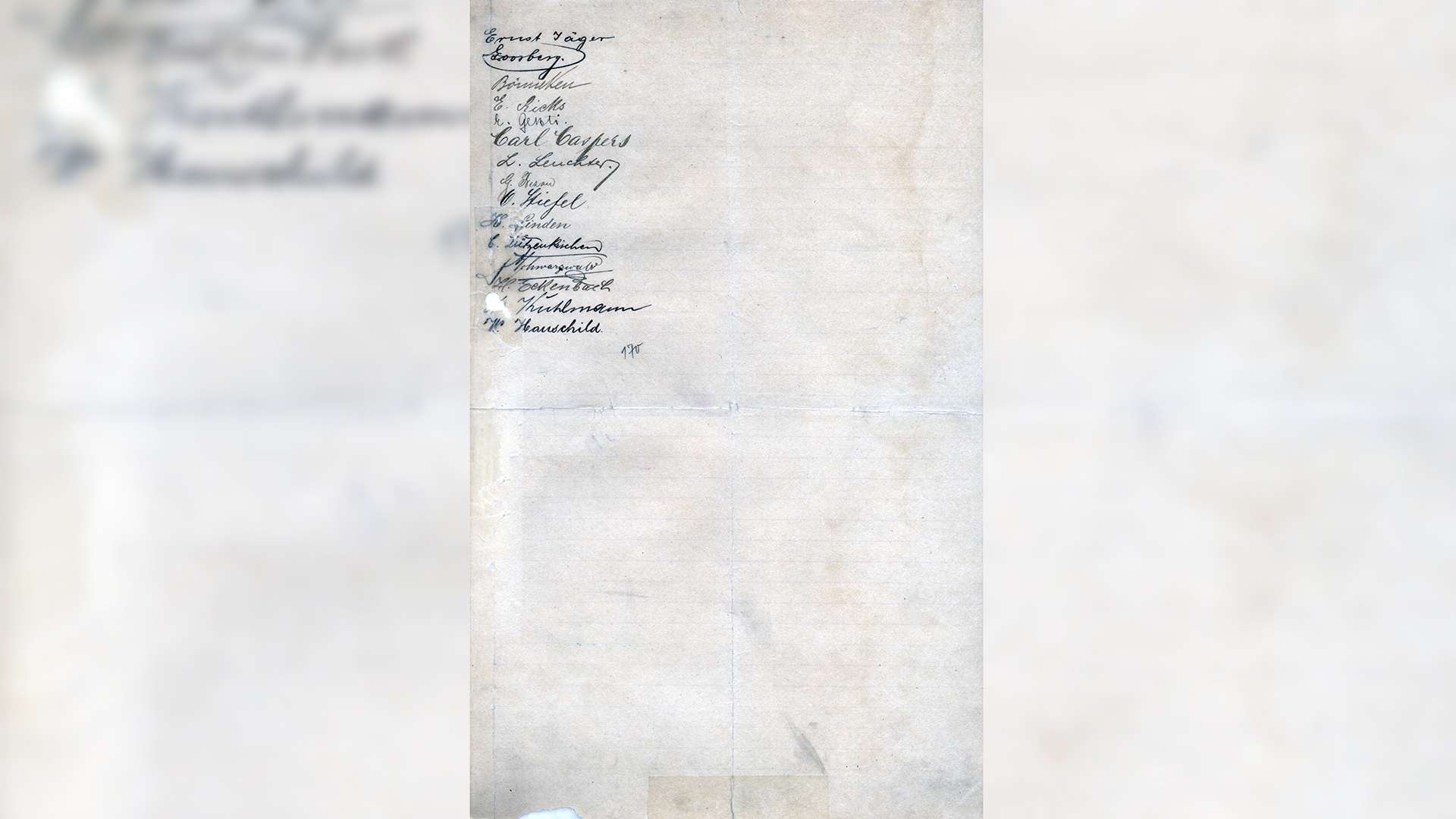
This circular including the signatures and an explanatory letter was sent by Hauschild in November 1903 to the "honoured management of the dye factories formally Friedrich Bayer & Co." with the request for a response. It did not take long for a reply. Friedrich Bayer Jr. and Carl Duisberg let Wilhelm Hauschild know that they "would be extremely happy if a gymnastic club was established in Leverkusen." They provide prospects of the construction of a gymnastic hall and the engineers department are asked to find a suitable playing field.
Related News

Legend: Christoph Daum - The man who taught us to want
Christoph Daum was born on 24 October 1953 in Zwickau. As a child, he moved to West Germany with his mother and grew up in Duisburg. He developed a great enthusiasm for football at an early age, even though it soon became clear that his future lay less on the pitch than on the sidelines. Even at a young age, his passion for analysing, explaining and improving things became apparent.
Show more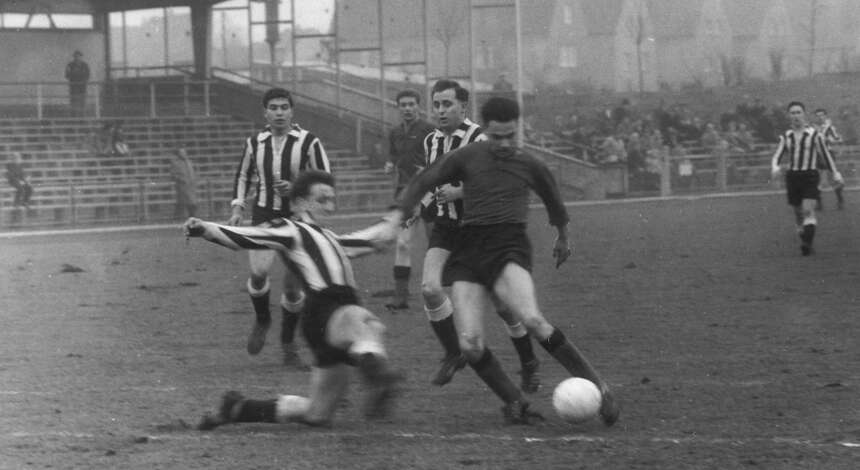
From the archives: 65 years ago - Another victory at last
When the Bayer 04 players celebrated Christmas in 1960, they spent the winter in second place in the Oberliga West 2 on 20 points - but already five points behind leaders Schwarz-Weiß Essen. However, coach Erich Garske's team are struggling to get back on track in the new year. A goalless draw against Bonner FV at home at the Ulrich Haberland Stadium was followed by a 2-1 away defeat in Erkenschwick. The following home game also yielded just one point. As a result, the team's promotion ambitions dwindled to a minimum, as the gap to the coveted spot has now grown to a challenging ten points.
Show more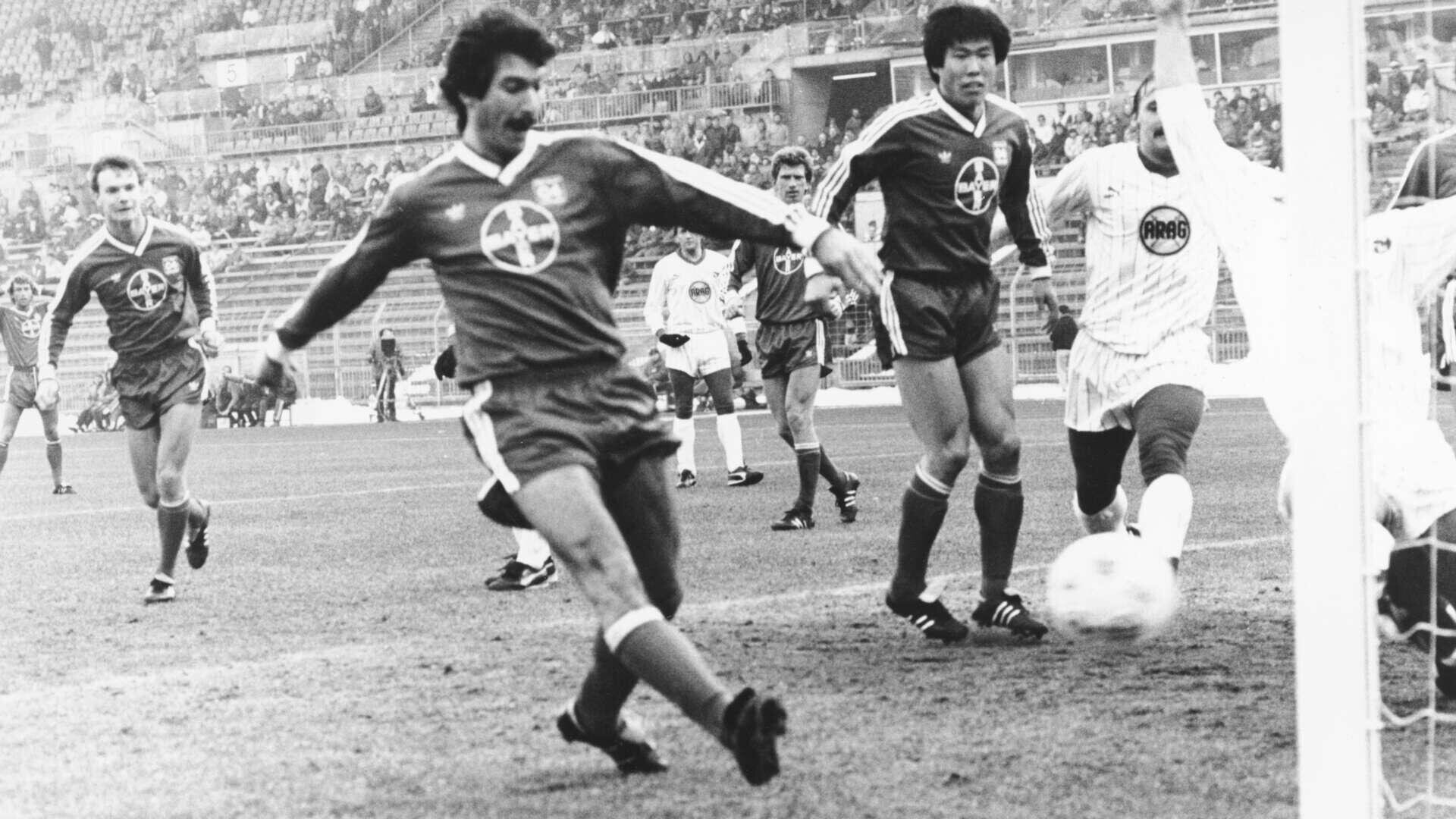
Goals of the month: From Waas to Tapsoba
In this video you can see impressive and important goals in Bayer 04 history from the month of February. It's not always about the beauty of the goals, but also a reminder of special games and players.
Show more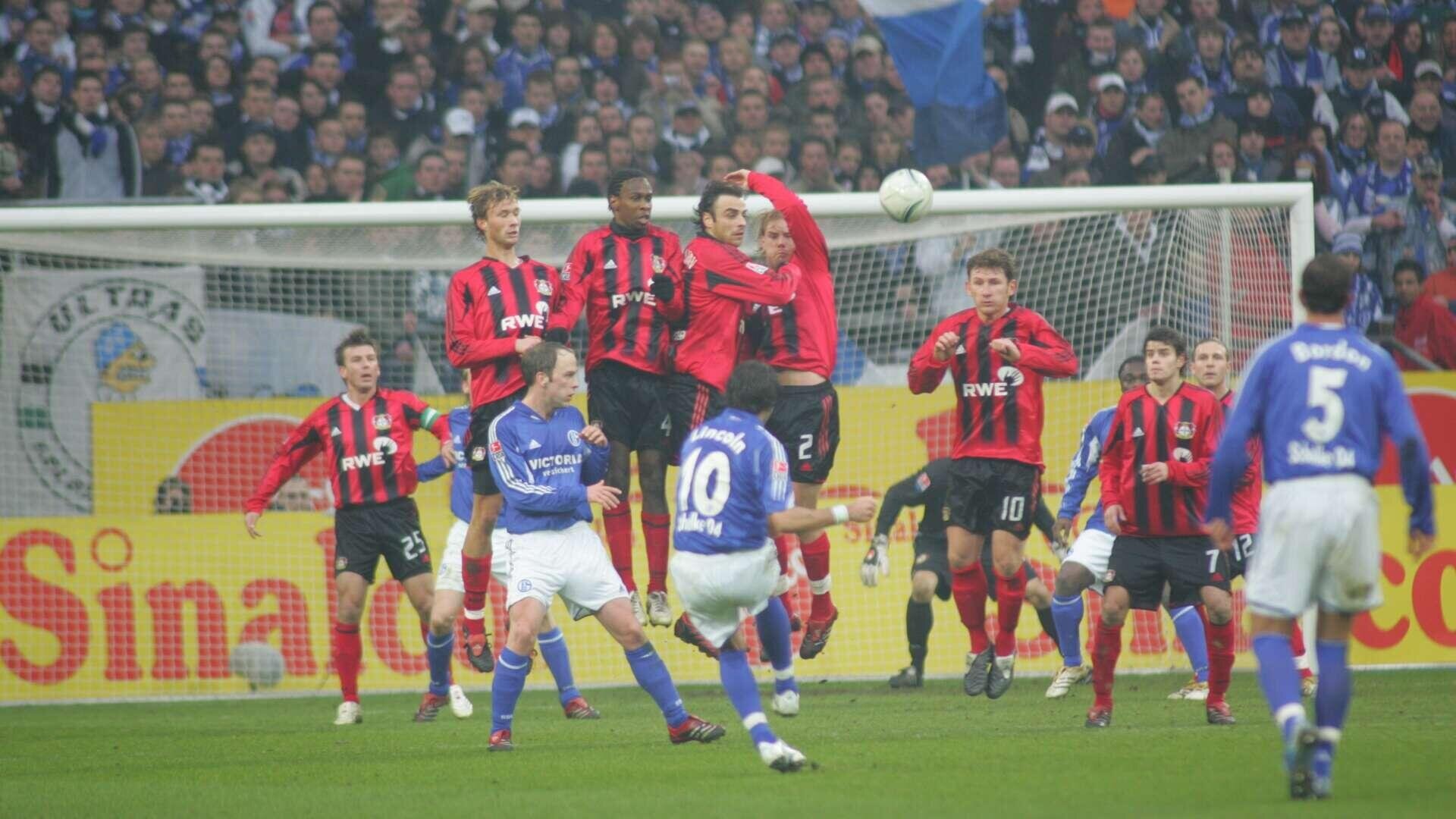
Match of the month: 20 years ago - A game of goals galore
It is 11 February 2006 and Schalke 04 and the Werkself kick off at 3.30 p.m. in a match that ends up being historic - at least from a Bayer 04 perspective.
Show more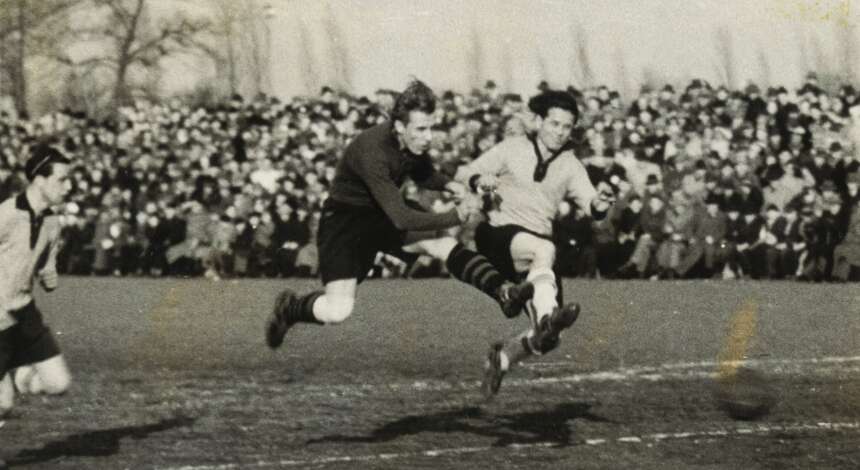
History: 75 years ago - The 1950/51 season (February)
As league leaders, the Werkself welcomed the relegation-threatened team from Rhenania Würselen. On 4 February 1951, 5,000 spectators line the touchlines despite the Sunday carnival parades. And they see a home team that is superior on the pitch. Without Theo Kirchberg, who was ill, and Emil Becks, who was suspended, the hosts attacked the opposing goal from the start. Battling against a strong wind in the first half, Bayer 04 created chance after chance, but were repeatedly thwarted by the Würselen goalkeeper. With the score at 0-0 at half-time, Karl Heinz Spikofski tried his luck on 55 minutes and hammered the ball into the opposition net from 20 metres out. Rhenania can no longer counterattack. The siege of the Würselen penalty area continued right to the end, but the game ended in a narrow 1-0 win.
Show more